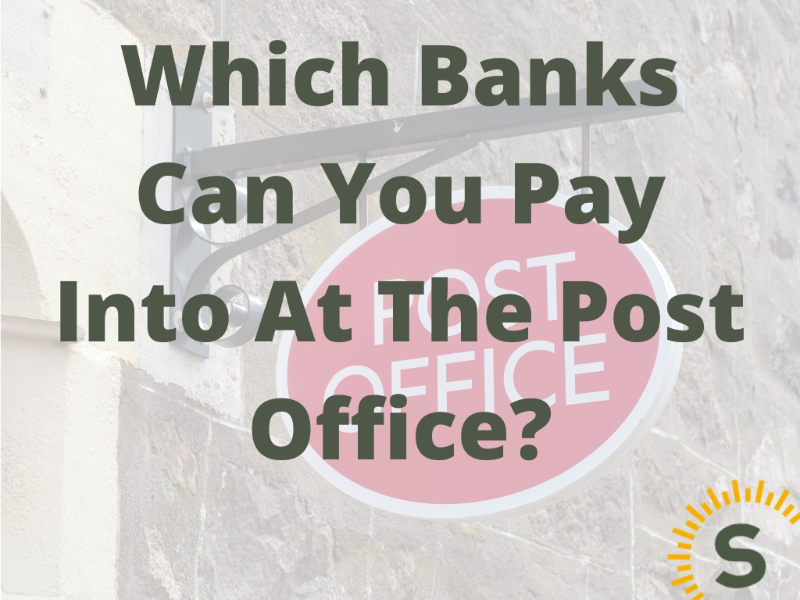
The world of banking has seen significant changes with the advent of digitalisation. Yet, despite the shift to online platforms, cash transactions remain a critical aspect of day-to-day life for many people.
Recognising this need, the Post Office in the UK offers an array of banking services, acting as a lifeline for those who depend on cash transactions.
This insight highlights which banks you can pay into at the post office and explores the extent of the banking services available at Post Office branches throughout the UK.
The banks that allow their customers to use Post Office services include:
These banks have agreements with the Post Office that allow their customers to conduct everyday banking activities over the counter at Post Office branches.
Over the years, the Post Office has transformed into a convenient banking hub for many UK residents. In December 2021, it set a record by handling £801 million in cash withdrawals, an increase of 7.8% compared to the previous month.
This surge indicates an increased awareness and appreciation of the Post Office's free everyday banking services.
The 11,500 Post Office branches across the UK have embraced their roles as banking service providers. This has not only expanded access to financial services but also led to a partnership with the Trussell Trust, a food bank charity. For every cash withdrawal, one penny goes to the charity, showing the Post Office's commitment to social responsibility.
Not all banks have the same cash deposit limits, so it's wise to check the limit at the Post Office branch you plan to use. You can pay in both notes and coins at a Post Office counter.
You can use your debit card and PIN to deposit cash into your account at a Post Office counter. Once the deposit is counted and a receipt is issued, you will have instant access to your money.
You can pay in up to £2,995 cash a month over Post Office counters using your debit card and PIN. This limit applies per account holder for joint accounts.
If you don't have a debit card or prefer not to use one, you can use a pre-printed paying-in slip to deposit cash. As the slips are personalised, you must present your own slip with your cash. The maximum amount you can pay in as a single deposit using your paying-in slip is £1,000.
When depositing cheques, you must use a cheque envelope and a paying-in slip. The cheques will take at least one additional working day to credit to your account.
Please note: If you're depositing cash and cheques at the same time, you must use separate paying-in slips for each.
Learn more about cashing cheques...
You can check your balance and withdraw cash at any Post Office counter using your debit card and PIN. The daily withdrawal limit from your current account is £300, and these withdrawals are free of charge.
You can get your travel Euros at the post office.
Post Office banking services are available:
It's worth noting that the operating hours may vary from one branch to another. Hence, it's advisable to check the working hours of your local Post Office branch.
Besides the Post Office, other innovative ways of accessing cash have emerged. One such scheme allows people to withdraw cash from retailers' cash tills without making a purchase.
This scheme, already in operation in more than 2,000 shops, allows people to withdraw up to £50 in notes and coins or check their balance free of charge. The scheme is run by payment services provider PayPoint and is open to other members of the Link network.
Since January 2020, customers of certain banks have been able to use Post Office branches to withdraw and deposit cash, make balance enquiries, and in most cases, deposit cheques.
This service has been described as a 'lifeline' by the Post Office, ensuring that people can still access essential services even if their local bank branch has closed.
The Post Office expects to handle over £3 billion in cash every month. Despite this impressive figure, the future of cash transactions is uncertain.
Digital banks like Monzo and Revolut, which have not signed up for the Post Office scheme, offer banking services that can be accessed 24/7 through their respective apps. This shift towards digital banking may change the way we perceive and conduct banking transactions in the future.
However, for now, the Post Office continues to play a crucial role in providing banking services to the UK population, especially those who rely on cash transactions.
Although the Post Office's renewed agreement with 30 banks and building societies is good news for those who rely on cash, critics argue that only legislation can secure the future of cash transactions.
The Post Office itself has stated that the agreement is fragile as it 'depends entirely on a commercial agreement between the banks and the Post Office to support it'.
The UK government committed to legislation supporting access to cash in March 2020, and a consultation on how cash legislation could work was launched in July 2021. The results of this consultation are yet to be published.
Yes, you can put money in your bank account through the post office. You will need to take your debit card with you to process the payment. If you are not paying into your own account you will need a paying-in slip.
Yes, you can deposit money to any of the 11,500 post office branches up and down the country.
Yes, you can pay in a cheque at the post office if you are paying it into a bank account. You will need to take your card or paying in book to make this deposit. Cheques paid in at the post office will take 4 full working days to clear.
The Post Office's partnership with numerous banks and building societies across the UK has made banking services more accessible, especially for those who rely on cash transactions.
With its wide range of services, the Post Office has transformed into a banking hub, offering a 'lifeline' to many UK residents. Even as the world of banking continues to evolve with digitalisation, the Post Office remains a pillar of banking services in the UK.

Stuart is an expert in Property, Money, Banking & Finance, having worked in retail and investment banking for 10+ years before founding Sunny Avenue. Stuart has spent his career studying finance. He holds qualifications in financial studies, mortgage advice & practice, banking operations, dealing & financial markets, derivatives, securities & investments.





Our website offers information about financial products such as investing, savings, equity release, mortgages, and insurance. None of the information on Sunny Avenue constitutes personal advice. Sunny Avenue does not offer any of these services directly and we only act as a directory service to connect you to the experts. If you require further information to proceed you will need to request advice, for example from the financial advisers listed. If you decide to invest, read the important investment notes provided first, decide how to proceed on your own basis, and remember that investments can go up and down in value, so you could get back less than you put in.
Think carefully before securing debts against your home. A mortgage is a loan secured on your home, which you could lose if you do not keep up your mortgage payments. Check that any mortgage will meet your needs if you want to move or sell your home or you want your family to inherit it. If you are in any doubt, seek independent advice.